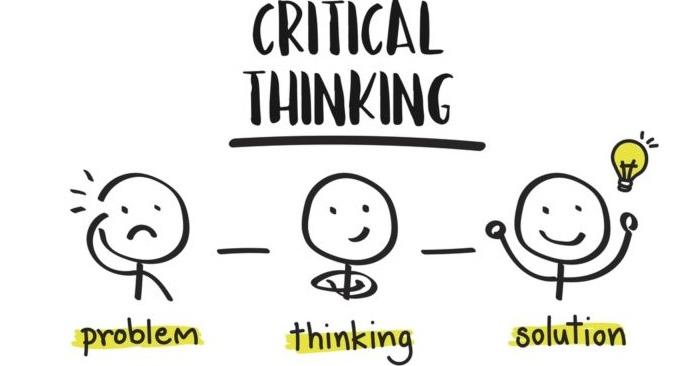Introduction:
In the digital age, the demand for critical thinking skills has never been more pronounced. With the proliferation of online learning, it has become essential for tutors to not only impart knowledge but also to cultivate students’ critical thinking abilities. Whether in STEM fields, humanities, or any other subject, fostering analytical skills is vital for students to succeed in an increasingly complex and fast-paced world. This blog explores the strategies that online tutors can employ to nurture critical thinking in their students, ensuring they are equipped with the tools to navigate and thrive in an ever-evolving landscape.
Encouraging Questioning and Curiosity:
One of the fundamental ways to promote critical thinking is by encouraging students to ask questions. In an online tutoring environment, tutors should create a safe space where students feel comfortable challenging concepts and seeking clarification. By fostering an environment that values curiosity, tutors can inspire students to delve deeper into the subject matter, promoting an analytical approach to learning.
Emphasizing Problem-Solving and Application:
In online tutoring sessions, it is crucial to incorporate real-world problems and practical applications of the subject matter. Tutors can design interactive activities and case studies that require students to apply their knowledge to solve complex problems. This approach not only reinforces understanding but also encourages students to think critically and explore different perspectives to find effective solutions.
Socratic Questioning and Dialogue:
Employing the Socratic method in online tutoring sessions can be a powerful tool for cultivating critical thinking skills. Tutors can use open-ended questions to prompt students to analyze, evaluate, and interpret information. By engaging students in thoughtful dialogue, tutors can guide them to think deeply about the underlying principles of the subject and encourage them to articulate their thought processes effectively.
Stimulating Diverse Perspectives:
To foster analytical skills, tutors should expose students to diverse viewpoints and interpretations of the subject matter. Incorporating multimedia resources, case studies, and interactive discussions that represent various perspectives can broaden students’ understanding and encourage them to critically evaluate different arguments and approaches. This approach nurtures open-mindedness and helps students develop a more holistic and nuanced understanding of the topic.
Integrating Critical Thinking Exercises:
Integrating specifically designed critical thinking exercises into online tutoring sessions can be instrumental in honing students’ analytical skills. These exercises could involve analyzing and critiquing research papers, conducting thought experiments, or engaging in collaborative problem-solving activities. By regularly incorporating such exercises, tutors can help students develop a systematic approach to analyzing information, assessing evidence, and making informed decisions.
Providing Constructive Feedback:
Constructive feedback is an essential component of nurturing critical thinking skills. Tutors should provide timely and specific feedback that highlights areas for improvement and encourages students to reflect on their reasoning and decision-making processes. By guiding students on how to strengthen their analytical approaches, tutors can foster a growth mindset and instill a sense of confidence in their critical thinking abilities.
Conclusion:
In the realm of online tutoring, fostering critical thinking skills is a transformative practice that equips students with the essential tools to navigate a rapidly evolving world. By implementing the strategies outlined in this blog, tutors can create an engaging and dynamic learning environment that not only imparts knowledge but also cultivates the analytical prowess necessary for academic and professional success. As online education continues to shape the future of learning, nurturing critical thinking remains an indispensable aspect of ensuring students are prepared to tackle the challenges of the 21st century.

